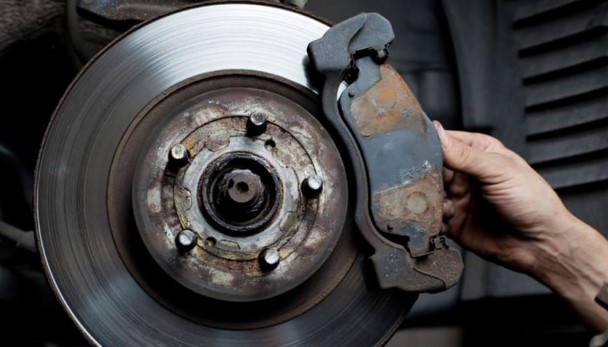
Why Your Brakes Are Rattling, Grinding, or Squeaking
Brakes can make unusual noises such as grinding, rattling or squeaking. These constant noises may be a sign that your brakes require more lubricant. These noises can also be an indication of worn brake system components. Below are the most common sounds and their causes.
Rattling
You may have defective brake mounting hardware if you hear a rattling sound when you release or press the brake pedal. This rattle is caused by worn or loose parts such as brake anti-rattle clip, caliper slider pins or shims. Wear-out hardware can also increase the pressure on your brake pads. It can lead to increased pressure on the rotors and vibrations.
Grinding
Grinding noises can be caused by a variety of factors. One of the most common causes is that rotors can form a layer of rust overnight. This buildup can cause a grinding sound that will stop when the car heats up.
Don’t ignore the rusty layer. The excessive buildup of road salt, mud or rust can cause grinding noises when you brake. This is a sign that the caliper and brake pads are vibrating and have rotor runout. The unusual noises are caused by rotor runout and vibrations on the brake caliper and pads.
A grinding noise may be heard when you apply the brakes. This is because the friction material on your brake pads has been worn down to the point that the metal backing of the pad is digging into the rotor.
Squeaking
The most annoying noise that you’ll hear in your car is brake squeaking. When brake pads and rotors are worn below the manufacturer specifications for your car, or they have become tarnished or bent, they can no longer expel heat. Squeaking is caused by your vehicle shaking, vibrating, and heating up.
Most modern vehicles have a brake wear indicator. This device will squeak when the friction material on your brakes wears out. It lets you know that it’s time to visit a mechanic. Do not wait to take your car to a mechanic when you hear the warning sound.
Don’t Wait to Fix Grinding Brakes
It’s not just embarrassing to grind and squeak your way through a busy intersection. This signals to other drivers that they should stay away. Not only are you putting yourself at risk, but also theirs.
Your brake pads and rotors will become worn out when you drive with brakes that are tired. These parts will wear out faster, making it more difficult to stop safely. You may experience longer stopping distances or brake slipping. Your car might also pull to one side. Also, brake pads that are worn out or damaged rotors may cause a shaking sensation or vibrations in the steering wheel.
A broken rotor can be caused by increased heat generated from metal-on-metal contacts. Listen to warning signs, and have your brake pads replaced and maintained. Ignoring brake pads can lead to rapid issues with the rotor, which will make your ride very bumpy.
How to Extend the Life of Your Brakes
Step one is to bring your vehicle in for service when you see the signs of worn out brakes. There are other smart driving habits you can use to extend the life of brakes.
When you follow the speed limit you will be less likely to need to stop suddenly. This is great news for brakes, as slamming them down can cause them to wear out faster.
Another tip: stop riding your brakes. Your brake pads will wear out faster if you put more pressure on your brakes. You can slow down your vehicle by releasing the gas pedal when you are traveling down steep hills or by applying the brakes quickly.
This post was written by a professional at Wheel Paradise. https://wheelparadise.com/ is a family owned retail shop providing new aftermarket wheels and tires. We have on-site designers that can work with you on putting together your dream vehicle. We offer most automotive customizations such as lift kits, suspension, lighting and much more. Wheel Paradise also has skilled mechanics ready to help with most mechanical needs. Financing is available. Customer relationship and satisfaction is our ultimate goal!
